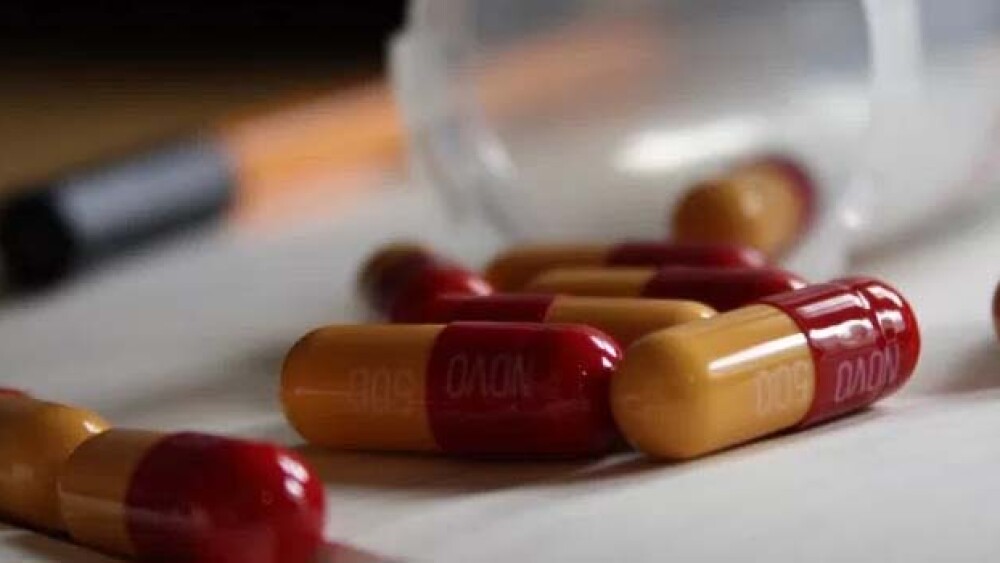Shares of Ultragenyx are sharply climbing this morning after the company announced positive results from its Phase III study of burosumab in adults with XLH.
Shares of Ultragenyx are sharply climbing this morning after the company announced positive results from its Phase III study of burosumab in adults with X-linked hypophosphatemia (XLH).
The company said treatment with burosumab for 48 weeks showed sustained maintenance of normal serum phosphorus levels and further improvement in stiffness, physical function and pain. Additionally, Ultragenyx said XLH patients who had been taking placebo during the trial and then began taking burosumab after 24 weeks showed normalization of serum phosphorus and improvement in stiffness, pain and physical functioning. Ultragenyx is developing burosumab for XLH with Japan-based partner Kyowa Hakko Kirin Co., Ltd.
The positive Phase III data keeps Ultragenyx on track for the U.S. Food and Drug Administration to approve burosumab for XLH. The FDA set a PDUFA date for April 17, 2018.
“This longer term data on symptom improvement and fracture healing support burosumab’s potential value in treating serious disease symptoms and promoting bone healing in adult patients with XLH,” Emil Kakkis, chief executive officer of Ultragenyx, said in a statement. “The continued clinical improvements in patients and the new data demonstrating a significant decrease in pain medication use after treatment with burosumab provide further support for the potential value in the treatment of adults with XLH.”
X-linked hypophosphatemia is a genetic disorder that affects approximately one in 20,000 people. The disorder is carried on the X-chromosome. Hypophosphatemia means “low level of phosphorus in the blood. According to the XLH Network, a patient’s kidneys do not properly handle vitamin D and phosphorus. Something circulating in the bloodstream causes the kidneys to treat phosphorus as a waste product and not return enough of it to the circulation for use by bones and teeth, the Network said. Low phosphate levels in the blood then lead to soft or weak bones typically called rickets. Features of the disease include bowed or bent legs, short stature, bone pain, and severe dental pain, according to the National Institutes of Health.
Burosumab is an investigational recombinant fully human monoclonal IgG1 antibody developed against the phosphaturic hormone fibroblast growth factor 23 (FGF23). FGF23 is a hormone that reduces serum levels of phosphorus and active vitamin D by regulating phosphate excretion and active vitamin D production by the kidney. Burosumab is designed to inhibit the biological activity of FGF23 and allow patients to reabsorb phosphates from the kidney and increase production of vitamin D.
Patients treated with burosumab in the 134-person trial showed continued improvement in stiffness and physical function as measured by the Western Ontario and McMaster Universities Osteoarthritis Index. Burosumab-treated patients saw a mean change in stiffness from 7.42 points at 24 weeks to 16.03 points at 48 weeks. Patients who crossed over from placebo to burosumab treatment had a mean change of 15.82 points from 24 to 48 weeks, according to trial results. Additionally, 84 percent of patients who received burosumab since the beginning of the study achieved and maintained serum phosphorus levels above the lower limit of normal. Of the patients who crossed over from placebo to the drug, 89 percent achieved and maintained serum phosphorus levels above the lower limit of normal.
Physical function also further improved from a mean change of 2.78 points at 24 weeks to 7.76 points at 48 weeks. For patients in the crossover group, physical function improved by a mean change of 8.18 points from 24 to 48 weeks.
“The longer term data from this adult Phase III study demonstrates the potential of burosumab to positively impact the lives of patients with XLH and we look forward to progressing our discussions with the regulatory bodies in Europe and the US,” Tom Stratford, president and CEO of Kyowa Kirin International, said in a statement.
Shares of Ultragenyx are trading at $52.16 as of 11:23 a.m.





